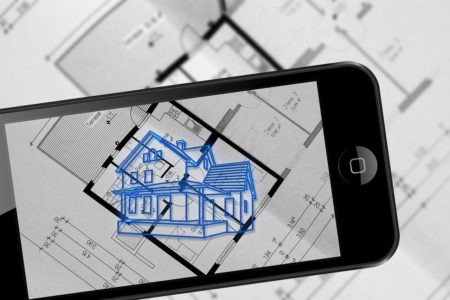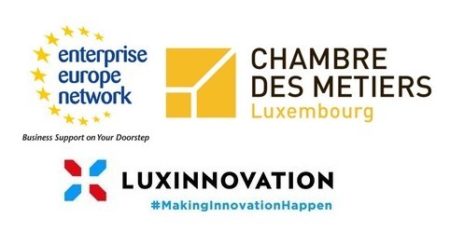 With the development of new technologies, virtual reality (VR) and augmented reality (AR) have become part of our daily lives. The gaming industry, in particular, is very fond of these technologies and they offer great possibilities for leisure.
With the development of new technologies, virtual reality (VR) and augmented reality (AR) have become part of our daily lives. The gaming industry, in particular, is very fond of these technologies and they offer great possibilities for leisure.
In the professional sphere, AR and VR are also developing in a solid way and bringing new perspectives for all types of professions, including crafts.
This is precisely the purpose of the latest “Club Inno” organised jointly by Luxinnovation, the Chamber of Skilled Crafts and the EEN network, on “Virtual and augmented reality in the craft industry”. Whether in planning, decision-making or repairs, for example, these technologies can provide valuable assistance to craftsmen.
The terms “virtual reality” and “augmented reality” can still be a little frightening, as their scope is not always well known. Virtual reality allows a person to be immersed in a virtual world using special headsets or glasses that allow a global vision (360°) of the world replicated in 3D. Augmented reality consists of adding a digital image to a real environment.
Taking the mystery out of these two concepts was one of the objectives of Matthieu Bracchetti, Founder & CEO of the company Virtual Rangers, and “Club Inno”. guest. Created in 2017, the company offers VR / AR solutions adapted to all types of activity.
Accessible technologies
For example, the company has developed training tools for medical staff: equipped with a virtual reality headset, they can practice equipping/un-equipping protective equipment in the context of Covid. “This allows them to repeat the right gestures in order to properly integrate the procedures. This is currently the case with COVID, but it can then be transposed in the event of future pandemics,” explained Mr Bracchetti.
Other applications make it possible, for example, to simulate a fire, check procedures and then train staff by trying to put them under the same stress as in reality.
Virtual reality and augmented reality are two technologies that do not necessarily require heavy and expensive equipment. We are obviously thinking of headsets/glasses that allow the user to be totally immersed in a new environment (virtual reality), but in the case of augmented reality, smartphones or tablets are enough to effectively exploit this technology. It is a matter of superimposing virtual elements on a real image obtained via the camera of a mobile device.
“It also allows us to couple these images with other technical elements,” says Bracchetti. “We can, for example, visualise a building in 3D, which in itself is not new, but this can be done by synchronising information from Building Information Modeling (BIM). That’s where the innovation lies.”
Creating such a virtual experience is, these days, relatively easy. An investment of a few thousand euros can be enough to start a project. “Creating 3D models can be done from simple blueprints, using a 3D scanner, which allows you to have a point cloud to then convert to a 3D model. The latest smartphones allow you to do this. Everything is possible, in terms of design. You just have to be careful not to create too complex environments, in order to keep the user experience more fluid and natural. The user experience has to be at the heart of the thinking, even if it’s the one that takes up the most time in projects.”
“A boom”
Ahead of virtual and augmented reality lies assisted reality, which is a first step towards the effective use of these new technologies. “It is an ingenious means of fast, almost personal communication that has helped us enormously during successive lockdowns,” explained Dr. Pierre Orlewski, head of Open Innovation & Technology Scouting at Goodyear.
The operators involved were equipped with a connected headset (Wifi, 3G, 4G, 5G) with a high-resolution camera, head movement sensors and a monitor near the right eye to read information. “Such equipment is compatible with conventional headsets and goggles. It costs about 1,600 euros each.
This makes remote assistance possible and avoids the need for an expert to be present on site. “The operator can keep his hands free during his intervention and can exchange information in real time with a mentor who sees everything in real time and can thereby help during the intervention.
It is clear that the health crisis, with its social distancing rules, has highlighted the benefits of such solutions. “There is a boom in the AR/VR markets and the advancement of technologies will allow for a reduction in entry costs and thus an even wider diffusion”, notes Claude Hostert, SME Performance Advisor at Luxinnovation.
The national agency for the promotion of innovation, together with the Chamber of Trade, is available to companies wishing to be supported in their innovation projects, irrespective if they are linked to the use of AR/VR.
The next “Club Inno” will take place towards the end of September focused on healthy materials. Stay tuned!

